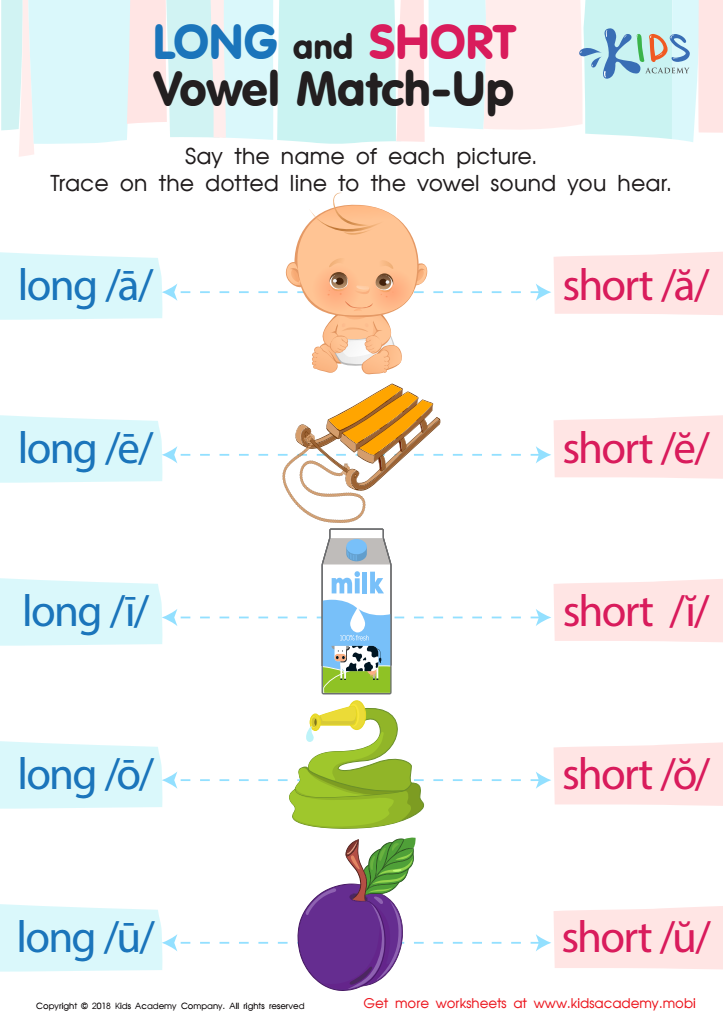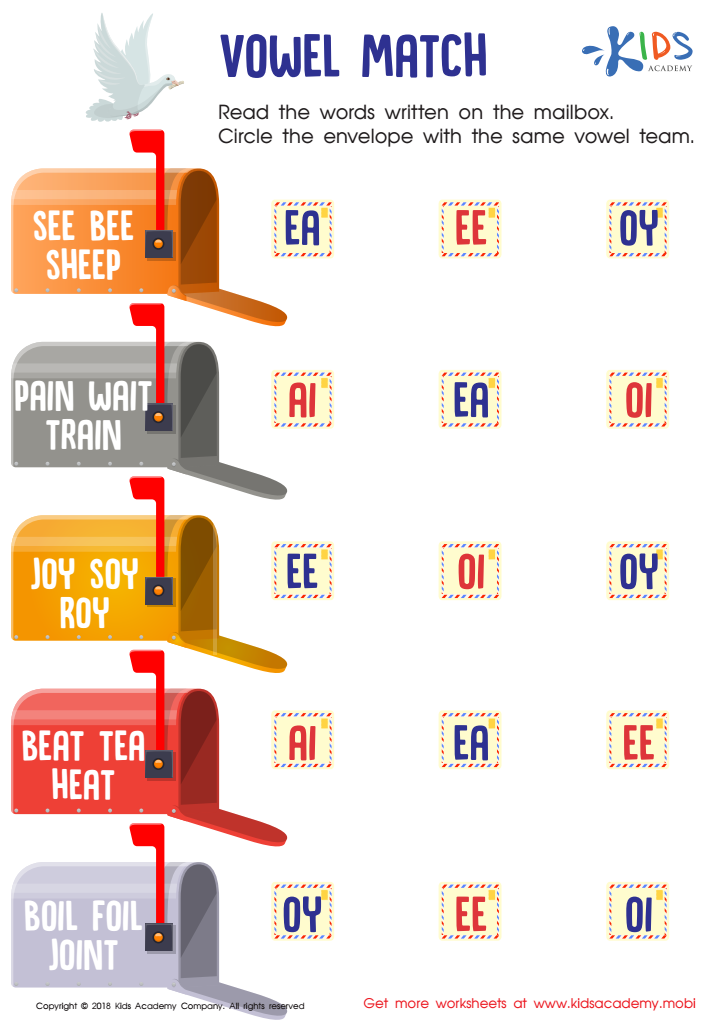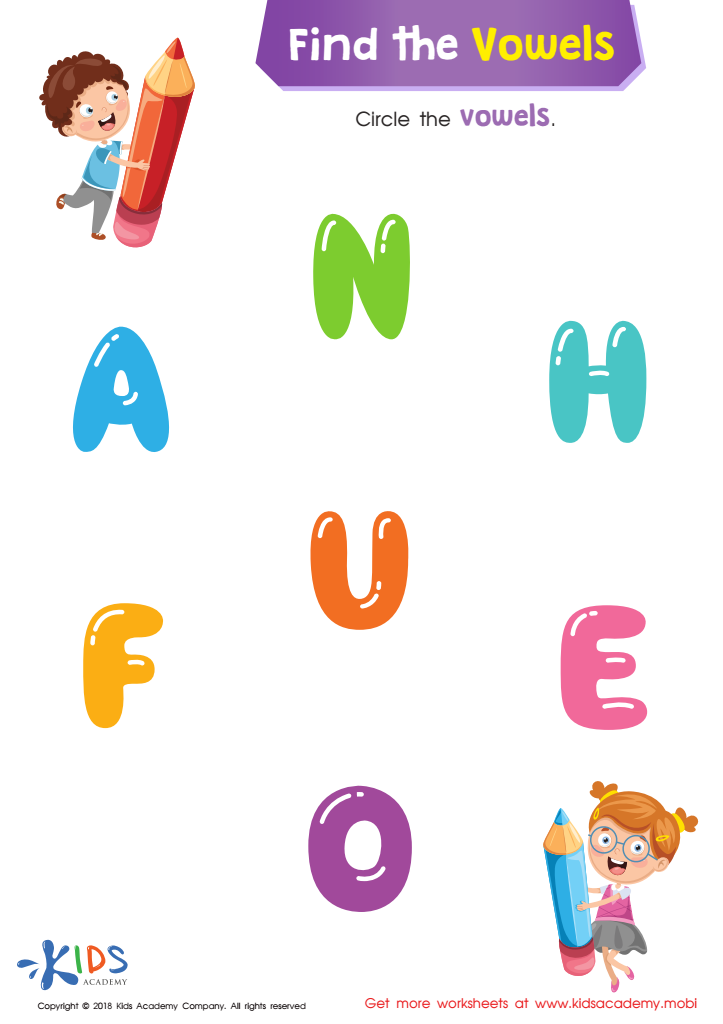Vowel Recognition Vowels and Consonants Worksheets for Ages 3-8
7 filtered results
-
From - To
Welcome to our engaging Vowel Recognition Worksheets designed for children ages 3-8! These interactive resources help young learners distinguish between vowels and consonants, forming a solid foundation in literacy. Through a variety of fun activities and colorful illustrations, children will develop essential phonemic awareness skills necessary for reading and writing. Each worksheet encourages practice with identifying and using vowels in diverse words, fostering retention and comprehension. Perfect for classroom or home use, our worksheets make learning enjoyable and effective. Explore our collection today to support your child's early literacy journey and build grasp of essential language skills!


Long and Short Vowel Match up Reading Worksheet


Let's Check Long Vowels: Assessment Worksheet


Vowel match Worksheet


Short Vowels /e/, /i/, and /u/ Worksheet


Short Vowel Eggs Worksheet


Find the Vowels Reading Worksheet


Long and Short Vowel Sentences: Assessment Worksheet
Vowel recognition is crucial for early literacy development in children aged 3-8, as it lays the foundation for reading and writing. Vowels (A, E, I, O, U) are fundamental components of words, and understanding their sounds assists young learners in decoding language. Recognizing vowels helps children differentiate between various sounds, fostering phonemic awareness, which is vital for spelling and reading fluency.
Teachers and parents should prioritize vowel and consonant recognition because it aids in building vocabulary and enhances overall communication skills. When children can quickly identify vowels, they can better tackle unfamiliar words, increasing their confidence and fostering a love for reading. Moreover, engaging activities focused on vowels and consonants can support language development through playful learning.
Additionally, early mastery of these concepts can help prevent reading difficulties later on, supporting all children in becoming proficient readers. It ensures they are equipped to tackle more complex texts as they grow. Overall, prioritizing vowel recognition contributes not only to academic success but also to effective expression and critical thinking, vital life skills that influence a child's development beyond the classroom. Hence, active involvement from parents and educators in this area is essential for children's formative learning experiences.
 Assign to My Students
Assign to My Students













